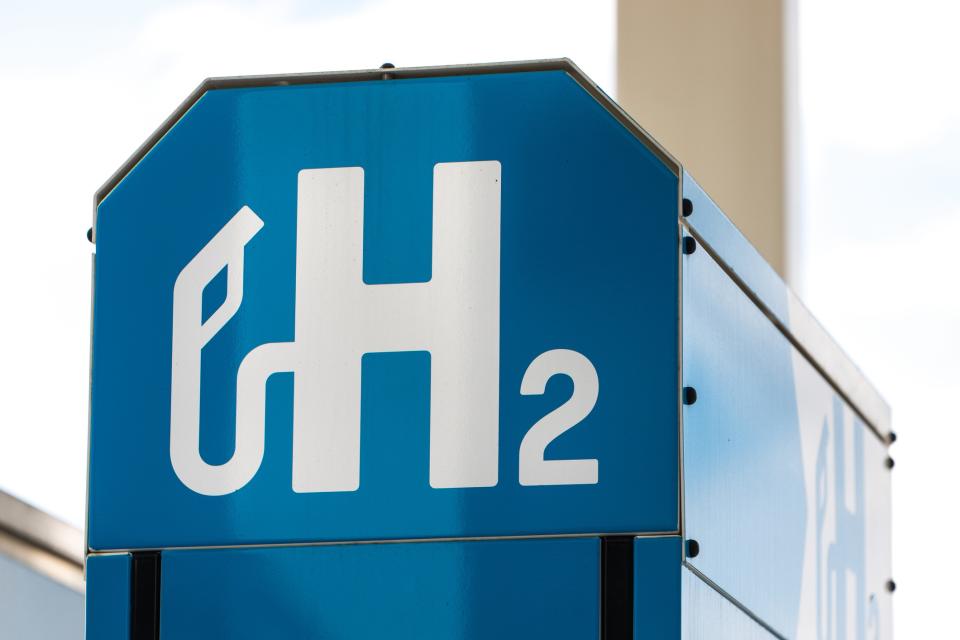Evoloh bets hydrogen won’t happen without better manufacturing

The path to starting a business is sometimes obvious, even if the founder doesn’t always realize it.
That’s certainly true for Jimmy Rojas, who took the first steps toward founding his startup Evoloh three years earlier as a graduate student at Stanford working on hydrogen and energy systems. It continued when he worked at Baruch Future Ventures analyzing potential deals.
“I was always looking at hydrogen deals,” Rojas told TechCrunch. “I remember those guys joking that I was a terrible investor because I passed on every single deal because I found issues with every single company out there. By the end, we were like, it’s better if I just start my own.”
Hydrogen is already a key ingredient for many chemical manufacturers, and startups and investors alike are betting it can help eliminate carbon pollution in everything from steel and cement to aviation and long-haul trucking. Thanks to his experience, Rojas felt he had a good sense for where hydrogen’s problems resided. To him, the biggest was in manufacturing the electrolyzers that make hydrogen gas.
“Electrolyzers are very expensive. They are really hard to produce, logistically complicated, very hard to transport and install, and they are often entangled in politically and environmentally problematic supply chains,” he said.
Rojas’s company, Evoloh, is attempting to solve all of those at once by focusing not on novel materials, as is often the case with hydrogen startups, but on manufacturing. In the process, he hopes to make hydrogen a key part of the world’s energy system.
“Clean, cheap hydrogen could be a platform on which completely new industries can be developed in the future,” Rojas said.
Many companies spend a lot of time creating a specialized membrane, one of the key components that allows hydrogen to be separated from water. But if hydrogen becomes a sufficiently large market, Rojas suspects that electrolyzers will quickly be commoditized. Even today, membrane development has become a bit of an arms race: “Someone will always have a better one,” he said.
Evoloh does make electrolyzers of its own design based on alkaline electrolysis. In an alkaline electrolyzer, two electrodes are submerged in a solution of alkaline water (usually consisting of a high concentration of potassium or sodium hydroxide). As electricity flows through the alkaline water, it splits water on one side into hydrogen gas and hydroxide and merges hydroxides on the other into water and oxygen.
Alkaline electrolysis differs from the other main approach, proton-exchange membrane electrolysis, in a few ways. One of the most important, though, is that alkaline electrolysis doesn’t require expensive exotic metals like platinum. That gives alkaline electrolyzers a cost advantage from the start, one that Evoloh says it builds on with its lower-cost manufacturing.
Evoloh also designed its electrolyzer stack, the core of the system, around inexpensive, domestically sourced materials and components. “We went to the power supply companies, and we asked them for the cheapest, most readily available power supply that you have. We did it with every other component, the pumps, the heat exchangers, every single thing,” Rojas said.
To further trim manufacturing costs, Evoloh uses roll-to-roll printing, a technique pioneered centuries ago by printing presses and more recently used in battery manufacturing. Both electrodes and membranes, the two main components of an electrolyzer, can be made using roll-to-roll equipment. As they come off the line, they’re cut to size and assembled into the final product.
The result is a compact and efficient electrolyzer that will be easy to transport and install, he said. The goal, Rojas said, is to “be prepared for this scenario in which [electrolyzer] stacks can become a hardware commodity.”
Evoloh is still working out the kinks in its manufacturing process, though Rojas expects that the company’s first factory will be up and running by the end of next year. When it’s at full capacity, it’ll be able to produce 3.75 gigawatts of electrolyzers using domestic materials, he said. That’s a significant amount, given that the world had just 11 gigawatts of manufacturing capacity in 2022, according to the IEA.
Evoloh recently raised an oversubscribed $20 million Series A led by Engine Ventures with participation by 3M Ventures and NextEra Energy. Rojas said the company will use the funding to refine its manufacturing process, deploy some large-scale pilots and sign paying customers.
The company is positioning itself as something akin to TSMC, the contract semiconductor manufacturer that makes chips for tech companies around the world. It’s a model that has worked out extraordinarily well for TSMC, though the company’s success is due in part because the global semiconductor market is so large. Evoloh’s success is similarly dependent on just how large the market for hydrogen becomes. If it remains relatively small, the startup could find some limited success. But if hydrogen becomes a cornerstone of several industries, then Evoloh’s bet on manufacturing will pay off handsomely.
